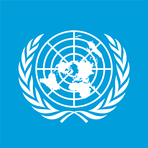The Unfolding Tragedy in Gaza: A Humanitarian Crisis Ignored
May 21, 2025, 10:10 pm

Location: United States, New York
Employees: 10001+
Founded date: 2002
Total raised: $500M
The air is thick with despair in Gaza. Israeli airstrikes have transformed neighborhoods into rubble. Lives are shattered. The death toll rises daily, and the world watches, some in horror, others in silence. As of May 20, 2025, the conflict has escalated dramatically, with reports indicating over 53,000 Palestinians dead, many of whom are women and children. The humanitarian crisis is dire, yet aid trickles in, hampered by bureaucratic hurdles and military restrictions.
The conflict ignited in October 2023 when Hamas militants launched a surprise attack on Israeli communities, killing around 1,200 people and taking hostages. In retaliation, Israel unleashed a relentless military campaign on Gaza. The cycle of violence continues, and the consequences are catastrophic.
The international community is increasingly vocal. Leaders from Britain, France, and Canada have expressed their horror at Israel's military actions. They demand a ceasefire and warn of potential sanctions. Yet, despite the pressure, Israeli Prime Minister Benjamin Netanyahu remains steadfast. He frames the conflict as a "war of civilization," vowing to continue until total victory is achieved. This rhetoric fuels the fire, leaving little room for diplomacy.
Gaza is a land of contrasts. Once vibrant, it now resembles a war zone. Streets are filled with debris, and the cries of the wounded echo through the air. Hospitals are overwhelmed. Medical supplies are dwindling. The United Nations reports that Gaza needs at least 500 trucks of aid daily, yet only a fraction of that arrives. The UN’s humanitarian agency has received approval for about 100 trucks, a drop in the ocean compared to the need.
Aid workers face a labyrinth of restrictions. The process to get aid cleared is described as "long, complex, complicated, and dangerous." This bureaucratic maze hinders the distribution of essential supplies. Food warehouses are empty. Families are starving. The UN warns of a looming famine, yet the flow of aid remains choked.
The Israeli government claims it is targeting Hamas, but the reality is grim. Civilian casualties mount. Strikes hit homes, schools, and shelters. On May 20 alone, airstrikes killed at least 85 people, including many women and children. The Israeli military asserts it warns civilians before strikes, but the warnings often come too late. The distinction between combatants and civilians blurs in densely populated areas, leading to tragic outcomes.
Criticism of Israel's actions is growing, even from within its borders. Yair Golan, a former military leader, has publicly condemned the government’s approach. He argues that a "sane country" does not engage in warfare against civilians. His remarks sparked outrage among some Israeli officials, who accused him of inciting hatred against the military. This internal dissent highlights a fracture in Israeli society, where the moral implications of the war are increasingly questioned.
International relations are strained. Israel's closest allies are re-evaluating their support. The UK has suspended trade negotiations and imposed sanctions on Israeli settlements. This shift signals a growing impatience with Israel's military tactics. The images of suffering in Gaza are hard to ignore, even for staunch allies.
As the war drags on, the humanitarian situation worsens. Displaced families seek refuge in overcrowded shelters. Children play amidst the ruins, their laughter a stark contrast to the devastation surrounding them. The psychological toll is immense. Trauma becomes a silent companion for those who survive.
Negotiations for a ceasefire have stalled. Israeli officials recall their negotiating team from Qatar, citing a lack of progress. Hamas accuses Israel of misleading the public about the seriousness of the talks. The gap between the two sides remains wide, and the prospect of peace seems distant.
The world watches as Gaza suffers. Images of destruction flood social media. Activists rally for change, demanding an end to the violence. Yet, the political will to act remains elusive. The cycle of violence continues, and the cries for help grow louder.
In this tragic landscape, hope flickers like a candle in the wind. Humanitarian organizations strive to deliver aid, but their efforts are often thwarted. The people of Gaza deserve more than sympathy; they need action. The international community must rise to the occasion, demanding accountability and pushing for a resolution.
As the conflict rages on, the human cost mounts. Each statistic represents a life lost, a family shattered. The world cannot afford to look away. The tragedy in Gaza is a call to conscience. It is a reminder that in the face of suffering, silence is complicity. The time for action is now. The time for compassion is now. The time for peace is now.
The conflict ignited in October 2023 when Hamas militants launched a surprise attack on Israeli communities, killing around 1,200 people and taking hostages. In retaliation, Israel unleashed a relentless military campaign on Gaza. The cycle of violence continues, and the consequences are catastrophic.
The international community is increasingly vocal. Leaders from Britain, France, and Canada have expressed their horror at Israel's military actions. They demand a ceasefire and warn of potential sanctions. Yet, despite the pressure, Israeli Prime Minister Benjamin Netanyahu remains steadfast. He frames the conflict as a "war of civilization," vowing to continue until total victory is achieved. This rhetoric fuels the fire, leaving little room for diplomacy.
Gaza is a land of contrasts. Once vibrant, it now resembles a war zone. Streets are filled with debris, and the cries of the wounded echo through the air. Hospitals are overwhelmed. Medical supplies are dwindling. The United Nations reports that Gaza needs at least 500 trucks of aid daily, yet only a fraction of that arrives. The UN’s humanitarian agency has received approval for about 100 trucks, a drop in the ocean compared to the need.
Aid workers face a labyrinth of restrictions. The process to get aid cleared is described as "long, complex, complicated, and dangerous." This bureaucratic maze hinders the distribution of essential supplies. Food warehouses are empty. Families are starving. The UN warns of a looming famine, yet the flow of aid remains choked.
The Israeli government claims it is targeting Hamas, but the reality is grim. Civilian casualties mount. Strikes hit homes, schools, and shelters. On May 20 alone, airstrikes killed at least 85 people, including many women and children. The Israeli military asserts it warns civilians before strikes, but the warnings often come too late. The distinction between combatants and civilians blurs in densely populated areas, leading to tragic outcomes.
Criticism of Israel's actions is growing, even from within its borders. Yair Golan, a former military leader, has publicly condemned the government’s approach. He argues that a "sane country" does not engage in warfare against civilians. His remarks sparked outrage among some Israeli officials, who accused him of inciting hatred against the military. This internal dissent highlights a fracture in Israeli society, where the moral implications of the war are increasingly questioned.
International relations are strained. Israel's closest allies are re-evaluating their support. The UK has suspended trade negotiations and imposed sanctions on Israeli settlements. This shift signals a growing impatience with Israel's military tactics. The images of suffering in Gaza are hard to ignore, even for staunch allies.
As the war drags on, the humanitarian situation worsens. Displaced families seek refuge in overcrowded shelters. Children play amidst the ruins, their laughter a stark contrast to the devastation surrounding them. The psychological toll is immense. Trauma becomes a silent companion for those who survive.
Negotiations for a ceasefire have stalled. Israeli officials recall their negotiating team from Qatar, citing a lack of progress. Hamas accuses Israel of misleading the public about the seriousness of the talks. The gap between the two sides remains wide, and the prospect of peace seems distant.
The world watches as Gaza suffers. Images of destruction flood social media. Activists rally for change, demanding an end to the violence. Yet, the political will to act remains elusive. The cycle of violence continues, and the cries for help grow louder.
In this tragic landscape, hope flickers like a candle in the wind. Humanitarian organizations strive to deliver aid, but their efforts are often thwarted. The people of Gaza deserve more than sympathy; they need action. The international community must rise to the occasion, demanding accountability and pushing for a resolution.
As the conflict rages on, the human cost mounts. Each statistic represents a life lost, a family shattered. The world cannot afford to look away. The tragedy in Gaza is a call to conscience. It is a reminder that in the face of suffering, silence is complicity. The time for action is now. The time for compassion is now. The time for peace is now.
